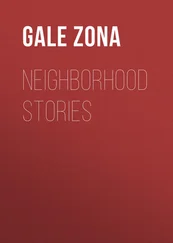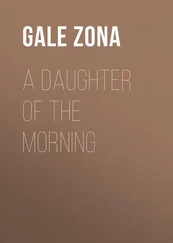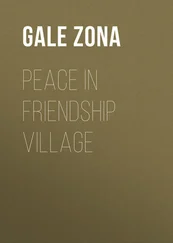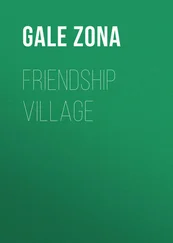Zona Gale - Heart's Kindred
Здесь есть возможность читать онлайн «Zona Gale - Heart's Kindred» — ознакомительный отрывок электронной книги совершенно бесплатно, а после прочтения отрывка купить полную версию. В некоторых случаях можно слушать аудио, скачать через торрент в формате fb2 и присутствует краткое содержание. Издательство: Иностранный паблик, Жанр: foreign_antique, foreign_prose, на английском языке. Описание произведения, (предисловие) а так же отзывы посетителей доступны на портале библиотеки ЛибКат.
- Название:Heart's Kindred
- Автор:
- Издательство:Иностранный паблик
- Жанр:
- Год:неизвестен
- ISBN:нет данных
- Рейтинг книги:4 / 5. Голосов: 1
-
Избранное:Добавить в избранное
- Отзывы:
-
Ваша оценка:
- 80
- 1
- 2
- 3
- 4
- 5
Heart's Kindred: краткое содержание, описание и аннотация
Предлагаем к чтению аннотацию, описание, краткое содержание или предисловие (зависит от того, что написал сам автор книги «Heart's Kindred»). Если вы не нашли необходимую информацию о книге — напишите в комментариях, мы постараемся отыскать её.
Heart's Kindred — читать онлайн ознакомительный отрывок
Ниже представлен текст книги, разбитый по страницам. Система сохранения места последней прочитанной страницы, позволяет с удобством читать онлайн бесплатно книгу «Heart's Kindred», без необходимости каждый раз заново искать на чём Вы остановились. Поставьте закладку, и сможете в любой момент перейти на страницу, на которой закончили чтение.
Интервал:
Закладка:
Had not the appraisers been waiting at the hotel for him, the Inger might have turned to the desert with her. As it was, at the edge of the settlement, where she suddenly and imperiously pointed, he set her down, ducking from the loop of rope and tossing it to her when she had dismounted.
“You took me along with you all right,” he reminded her.
She laughed and ran away.
“What have you got for me now?” the Inger called after her.
“This!” she said, and threw a kiss somewhere in the air.
There followed days of anxiety when the men at the mine doubted, and the appraisers hung fire, and pretended to less than they knew. In the midst of it, the Inger had ridden away to the desert and camped for three days, and had returned to find them cursing him out and making an estimate of millions. Riding in after dark to send the message to his father, still grub-staking to the north, the Inger for the second time had seen Lory Moor. She was in the crowd which he was breasting, outside a motion picture house. She was in tawdry pink, with a flame of rose in her hat, and she was with Bunchy. His hands were upon her and he was saying something in her ear from one corner of his mouth. She was not listening, the Inger thought as he passed her. She did not see him, and for this he felt vaguely thankful – as if he had come on her in some shame. A day or two after this Jem had told him that she was to marry Bunchy.
To marry Bunchy, the Inger thought as he lounged in the street outside the Inn on her wedding night, was the worst that could come to her. He drifted into a saloon across the way, one of the meaner places, and on this night of plenty almost unfrequented. He sat down at a table in range with the doors of the Inn, and drank reflectively. That day that he had had her, what if he had galloped away with her to the foothills, to the camp, to the other side of somewhere? He sat thinking of her, wondering why he had not dared it, playing at what might have been.
On the table lay a San Francisco newspaper, three days old. As he drank he glanced at the headlines. “War May Last Another Year,” he read. “Reserves of Three Nations to be Called Out Within the Month.”
The thought had come to him before, since the money came. To-night he turned to it in a kind of relief: Why not go there? There was fighting worth a man’s hand. Drunken Indians, an outlaw or two, a horse thief strung up in a wink and all over – these were all that he knew of warfare. Was he to die with no more understanding than this of how a man might live and die? The thing was happening now – the adventure of the great guns and the many deaths. Yet he, a man like other men, sat here idle. He closed his eyes and lay with those men in the trenches, or leapt up to kill again and again at fifty yards, saw the men roll in torture, saw them red and grovelling in red… A lust of the thing came on him. He wanted it, as he wanted no other thing that his mind had ever played with. He forgot Jem Moor’s daughter in that imaginary desert. He swallowed and tasted and opened his eyes as on a forgotten world. He pounded the table for more liquor.
“Why don’t you go to the war, you scared, snivelling Pale-liver?” he demanded of the shuffling bartender.
The small man’s little red-rimmed and red-shot eyes lighted, and his lips drew back over black teeth.
“If I was a young dog like you, I’d be there stickin’ in the lead, you bet,” he said. “What you ’fraid of?”
“Nothin’,” said the Inger, suddenly; “I’m goin’!”
“Plough some of ’em up prime for me,” begged the old man. “I croaked two men myself afore I was your age. It were in a sheriff’s raid, though,” he regretfully added.
The Inger looked at him thoughtfully. It occurred to him that though he was credited with it, he himself had never killed a man in his life. Yet killing was a man’s job, and over there was the war, and he had the means to get to it. There was need of more to kill – and to be killed. And he had been hanging on a shelf of Whiteface for all these months!
He drained his glass and went to the door, as if the need to do something at once were upon him. He saw that the wedding guests were filling the streets, and moving into the Inn. All of Inch was out there – the women gorgeous in all that they had, and even some of the men dressed in the clothes which they wore on a journey. Already some were drunken, and all were loud with merriment, which they somehow felt was required of them, like eating three times a day or scorning a stranger. Everywhere there were children, who must needs go where the grown folk went or be left alone. “Parents Must Keep Children Off the Floor,” was posted on the walls of the Inch public dance halls.
Next to the office door, the door of the hotel bar stood open now, and by the array of cut colored paper hanging from the chandeliers, he guessed that the wedding was to be solemnized in there. This was natural – the bar was the largest room in the house, and the most magnificent in the town – the only bar, in fact, with a real mirror at the back. Moreover, Bunchy’s barkeeper was a man of parts, being a bass singer and a justice of the peace. With his apron laid aside, he was to give a tune while the guests assembled, and afterward it was he who was to perform the ceremony. Nobody thought of expecting the ceremony to be held in Jem Moor’s ’dobe.
It was Jem Moor himself who, while the wedding guests were still noisily passing in the hotel, the Inger saw coming down the street. He was neatly dressed in the best he had, and though one trouser leg had crept to the top of a boot, and his red cravat was under an ear, still he bore signs of a sometime careful toilet. He broke into an uneven run – the running of a man whose feet are old and sore – and disappeared in the doorway of the Inn office.
The Inger’s look followed him, speculatively.
“But one more drink and I could be over there makin’ more kinds of hell than usual,” he said to himself, and went back to the bar.
He was draining his glass when the sound of confused talk and movement came to him, and, as he wheeled, he saw that across the street the interior of the Inn bar and office were in an uproar. The wedding guests were rising, there were shouts and groans, and a shrill scream or two. Some came running to the street, and over all there burst occasional great jets of men’s laughter.
“’S up?” asked the old barkeeper behind him.
The Inger did not answer. He stood in the doorway waiting for something. He did not know what he waited for, but the imminent thing, whatever it was, held him still. A hope, which he could not have formulated, came shining slowly toward him, in him.
In a moment, Jem Moor emerged from the office door, still brokenly running, seeking to escape from those who crowded with him, questioning him. The Inger strolled from the doorway, across the street, took his way through the little group which fell back for him, and brought his hand down on the old man’s shoulder.
“Anything wrong?” he inquired.
Jem Moor looked up at him. He was pinched and the lines of his nose were drawn, and his lips were pulling.
“She’s skipped,” he said. “I’m in for ’Leven Hundred odd, to Bunchy.”
Something in the Inger leaped out and soared. He stood there, saying what he had to say, conscious all the time that as soon as might be he should be free to soar with it.
“Alone?” he demanded.
Jem Moor held out a scrap of paper. The Inger took it and read, the others peering over his arms and shoulders.
“Dad,” it said, “I can’t go Bunchy. I know what this’ll do to you, but I can’t never do it – I can’t. I’ve gone for good. Dear old Dad, don’t you hate me.
“Lory.”The tears were running down Jem Moor’s face.
Читать дальшеИнтервал:
Закладка:
Похожие книги на «Heart's Kindred»
Представляем Вашему вниманию похожие книги на «Heart's Kindred» списком для выбора. Мы отобрали схожую по названию и смыслу литературу в надежде предоставить читателям больше вариантов отыскать новые, интересные, ещё непрочитанные произведения.
Обсуждение, отзывы о книге «Heart's Kindred» и просто собственные мнения читателей. Оставьте ваши комментарии, напишите, что Вы думаете о произведении, его смысле или главных героях. Укажите что конкретно понравилось, а что нет, и почему Вы так считаете.











